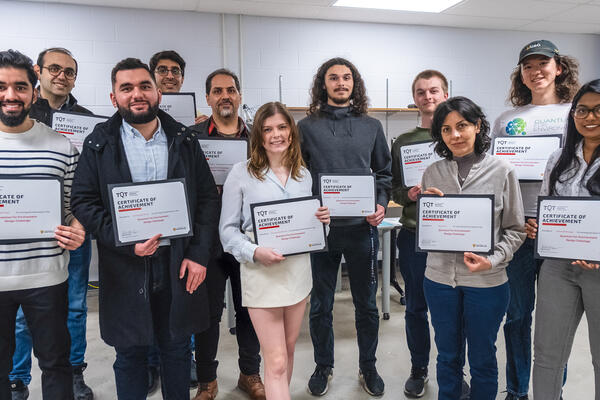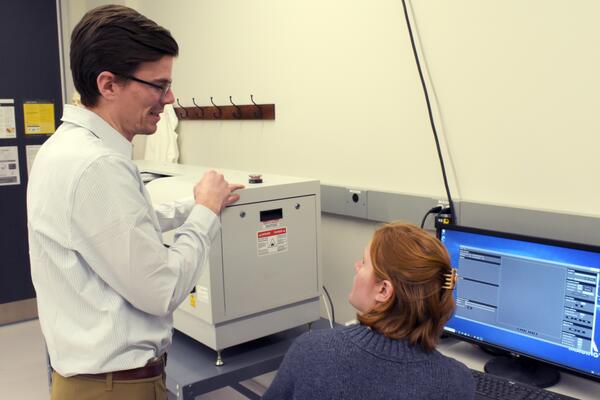
People too trusting of virtual assistants
Attributing lifelike qualities to virtual assistants could cause people to reveal more personal information to the companies that own them than they otherwise would, according to a new study.

Attributing lifelike qualities to virtual assistants could cause people to reveal more personal information to the companies that own them than they otherwise would, according to a new study.
By Media RelationsResearchers at the University of Waterloo, who conducted the study, found that people tend to increase their sharing with online agents such as Alexa, Google Assistant and Siri, due to their tendency to assign them personalities and physical features such as age, facial expressions and hairstyles.
“People are anthropomorphizing these conversation agents which could result in them revealing information to the companies behind these agents that they otherwise wouldn’t,” said Edward Lank, a professor in Waterloo’s David R. Cheriton School of Computer Science. “These agents are data gathering tools that companies are using to sell us stuff.
“People need to reflect a little to see if they are formulating impressions of these agents rather than seeing them as just a piece of technology and trusting them in ways based on these impressions.”
In undertaking the study, the researchers had 10 men and 10 women interact with three conversational agents, Alexa, Google Assistant, and Siri. The researchers then interviewed the 20 participants to ascertain their perception of the agents’ personalities and what they would look like before finally asking each participant to create an avatar for each agent.
The study’s combined results revealed that Siri’s sentiment is predominantly described as disingenuous and cunning, while Alexa is genuine and caring. The participants commonly described Alexa’s individuality as neutral and ordinary, while participants considered the individuality of Google, and Siri especially, to be more defined and pronounced.
In describing the agents visually, the participants perceived Alexa to be of average height or slightly shorter, older than the other agents, and wearing casual or business-casual clothes of dark or neutral colours. Her hair tended to be seen as darker, wavy, and worn down.
How the participants generally visualized, from left to right: Alexa, Google, Siri.
The volunteers tended to perceive Google as being average height or taller, wearing either casual clothes with a focus on tech culture (e.g., hoodies), or business-formal clothes, both of dark or neutral colours. They tended to perceive Google’s hair as lighter in colour (blond, brunette) and as either long and straight, worn down or worn up (bun, ponytail), and they specifically associated Google with higher professionalism.
Siri was commonly described as being of average height, younger than the other agents, and rarely wearing glasses, wearing either casual but fashionable clothes (V-necks, tank tops, heels) or strictly business-formal style, of either dark or particularly bright colours, especially red. The participants described Siri’s hair as short or as long straight hair worn down, either blond or black.
“This is a window into the way of thinking, and unfortunately, there are a lot of biases,” said Anastasia Kuzminykh, a PhD candidate in Waterloo’s Faculty of Mathematics. “How an agent is perceived impacts how it’s accepted and how people interact with it; how much people trust it, how much people talk to it, and the way people talk to it.”
The study, Genie In The Bottle: Anthropomorphized Perceptions Of Conversational Agents, will be presented at the ACM CHI Conference on Human Factors in Computing Systems, to be held in Honolulu, USA between April 25-30.

Read more
First-year students hone more than their research skills by exploring what it means to be happy

Read more
12 Waterloo students and postdoctoral fellows receive up to $10,000 in funding to develop their green-tech solutions

Read more
Equipment allows researchers to see inside tissues and medical devices
The University of Waterloo acknowledges that much of our work takes place on the traditional territory of the Neutral, Anishinaabeg and Haudenosaunee peoples. Our main campus is situated on the Haldimand Tract, the land granted to the Six Nations that includes six miles on each side of the Grand River. Our active work toward reconciliation takes place across our campuses through research, learning, teaching, and community building, and is co-ordinated within the Office of Indigenous Relations.